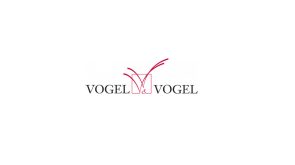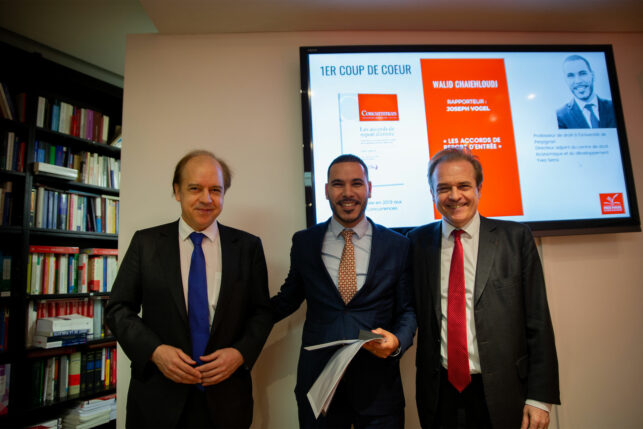Three important questions are currently being asked with regard to the confidentiality of advice given by corporate lawyers:
I. What is the current situation in France and in Europe?
II. Is this situation satisfactory?
III. How can it be improved?

The question of the confidentiality of legal advice from these lawyers is not harmonized in Europe. Eighteen out of twenty-eight States grant such protection for legal advice from in-house lawyers, as do most common law countries.
However, France is not one of them.
French in-house counsel do not have any particular legal status and any advice they give to other members of the undertaking (in particular directors and managers) are not protected by the rules of confidentiality.
Communications/exchanges between them may therefore be seized and used in the event of a raid in the company’s premises.
Where the Commission takes such action, European law becomes applicable.
The European Court of Justice recognizes the protection of confidentiality subject to two conditions:
– the exchange with the lawyer must be related to the exercise of the “client’s rights of defense”;
– the exchange must be with “an independent lawyer” i.e. not employed by an undertaking (regardless of the fact that such lawyers are subject to the same ethical rules as non-salaried lawyers).
In light of those very strict conditions, in-house counsel are not covered by confidentiality under EU law.
II. Today, French and EU law on this issue are unsatisfactory for a number of reasons:
1) Different rules in different Member States
Some protect the advice given by in-house lawyers, while others, e.g. France, do not, and European law also has its own rules.
In Belgium, for example, the Court of Cassation recently confirmed that advice given by corporate lawyers (who have a special status in Belgium) is confidential. The case concerned a raid carried out by the Belgian Competition Authority in the premises of Belgacom Group.
However, this is only applicable in the context of a procedure subject to the Belgian legal rules and as soon as the procedure has to comply with the European rules, European law – with its fundamentally different approach – will apply.
These opposing rules – applicable according to whether action is taken nationally or at the European level – are highly detrimental for businesses in terms of legal certainty.
2) The current situation leads to perverse effects
Under French competition law (Art. L.450-4 Commercial Code), like in customs and excise law (Art. 64 Customs Code) and tax law (Art. L. 16 B Book of Tax Procedures), businesses may sometimes find inspectors appearing at their place of business with no warning to carry out a search and to seize any documents able to confirm their suspicions.
For in-depth court-ordered investigations (enquête lourde) – as opposed to less onerous, basic investigations – (enquête simple), investigators have a wide discretion when seizing evidence as they may take any document relating to the purpose of the investigation.
Fortunately this right to seize all documents pertaining to the investigation is not absolute. It is limited by the protection of personal correspondence and, especially, by professional secrecy which applies to correspondence between clients and their external lawyers.
In theory, when investigators find documents which are covered by professional secrecy, they must place them under seal.
The French Court of Cassation has also recently confirmed that the violation of professional secrecy occurs as soon as a document is seized by investigators (5 rulings of the Court of Cassation, criminal chamber, 24 April 2013). The fact that a document is returned is irrelevant to the finding of a violation.
Advice given by in-house lawyers are not regarded as confidential. It may be seized just like any other type of correspondence provided it is neither of a personal nature, exchanged with an independent lawyer, or devoid of any relation to the object of the investigation.
Indeed investigators frequently seize the entire content of the legal director’s mailbox.
This situation places corporate counsel in an impossible situation, as their role is to advise undertakings as best they can as to what is permitted and what is unlawful.
Of course, they will often state explicitly and in writing that a practice is illegal (e.g. recommending that the undertaking refrain from behavior which in their view would constitute an anticompetitive agreement).
But their role can transform rapidly in the event of a dawn raid.
When the investigators seize documents written by the in-house counsel which may constitute evidence of an offense, he /she is placed in the position of a witness for the prosecution, which is extremely damaging for the company directors.
The possibility to seize advice given by in-house lawyers inhibits the establishment of a climate of trust within the undertaking and results in perverse effects on the compliance of practices with the regulations.
Ultimately consulting corporate counsel, especially when in writing, can backfire against the company.
3) In international litigation the absence of confidentiality means that undertakings do not have the same defense rights as foreign undertakings
In most English-speaking countries, the parties to a dispute must produce all evidence which may be favorable to the claims of the other party (“disclosure” in English law and “discovery” in US and Australian law).
Parties can however object to the production of a document if they consider that it comes under professional secrecy.
In the case of international litigation, the authorities or companies of the other countries can ask the French undertakings to provide documents written by their legal departments.
Such documents will constitute evidence in support of the adversary’s claims and, as they are not regarded as confidential in France, French businesses are obliged to comply.
French authorities and undertakings cannot obtain the same documents from opposing parties since such documents are often protected by confidentiality in their own countries.
III. This situation must change
France (and the EU and all its Member States) needs new legislation protecting legal advice given by in-house counsel.
1) A change essential to the role of corporate lawyers in a modern society such as France
Society is becoming increasingly complex and thus increasingly “legalized”: there are currently more than 16,000 corporate lawyers in France, to which we can add 50,000 external lawyers (avocats) and 9,000 notaries, without counting bailiffs, auctioneers, court clerks, etc. and all the indirect jobs that they generate.
However, for reasons pertaining to its history, France is somewhat wary of the law.
There is a belief according to which action by the State can solve all problems.
A disproportionate emphasis is thus placed on the government which has its own courts and its own rules and procedures.
Accordingly, in France corporate lawyers do not have the same recognition as elsewhere (particularly the most developed countries).
Corporate legal departments are still all too often regarded as ancillary, supporting the more essential management, financial or commercial departments.
French in-house jurists often struggle to have a voice within the company and are too often treated as agents for the application of the formal rules rather than as strategists.
Confidentiality has an important psychological facet and hopefully would enable in-house lawyers to be better perceived by employees and more involved in the strategic decisions of the company.
France’s position as a global competitor is also at stake: foreign businesses are reluctant to locate to France today; French companies are themselves pushed to relocate their legal departments and to hire foreign lawyers as a priority.
French in-house counsel and the international sphere of influence of France’s continental law are therefore losing ground and this has contributed to the crisis the system is now experiencing.
2) Confidentiality would encourage legal efficiency
In order to properly carry out their role as legal advisors, in-house lawyers must be able to present their opinions within the company objectively and without fear of undermining the company. Directors and managers must not be forced into a position where they are reluctant to consult them.
Confidentiality may even spur them to seek the advice of their counsel on a more regular basis, thus improving the conformity of their company’s practices with the regulations.
3) Better protection of defense rights
Of course one of the main advantages of confidentiality would, in the context of searches of premises, be the fact that advice and recommendations given by counsel to the other employees of the company could not be seized.
Competition, customs and tax authorities would therefore be prevented from taking and using this type of document as evidence to prosecute companies.
If protected documents were illegally seized, undertakings would have grounds to challenge the conduct of the search operation before the Court of Appeal.
Even though under current case law no procedure has been annulled in its entirety on the grounds of the breach of professional secrecy, we can but hope that this will change in the future.
Lastly, confidentiality for corporate lawyers would get rid of the obligation to produce evidence in the context of cross-border disputes (disclosure or discovery).
At the national level, it will also allow them to refuse an order for disclosure from a French court pursuant to Article 11 of the Code of Civil Procedure, professional secrecy being recognized as a « legitimate impediment ».
In light of all the issues addressed above, in-house lawyers need to be granted the protection of confidentiality as a matter of urgency in France and the other Member States.
It is highly likely that were such protection granted under national laws, the Court of Justice would itself be encouraged to follow suit by recognizing the confidentiality of advice given by corporate counsel in the context of Commission investigations.

 MON COMPTE
MON COMPTE













